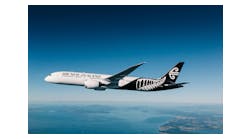Open your mobile device, tablet, computer, or a newspaper these days and you can’t help but read news or commentary about the airline industry. The subject of airline merger continues to capture the headlines. The impact of fuel prices, labor concerns, shortage of talent, charges for meals, baggage and in some cases seat assignments, all seem to prompt regular comments. We recently read how the Department of Justice brought suit against American Airlines and US Airways in an effort to halt or stall the pending merger on grounds that consumers would have fewer travel options and face higher prices after a major competitor in the industry disappears. You can’t help but question why this decision comes now, at a point well into the merger process, and after numerous airline mergers have occurred in the past decade.
Who would have guessed a couple decades ago an airline would operate an oil refinery, or you could go onto any number of internet sites and purchase inexpensive tickets (although most with additional fees attached), or OEMs would actively provide maintenance services rather than only manufacturing aircraft, engines, or components. I’ve heard comments like will this dynamic industry actually settle down? It doesn’t appear like it, but the answer to this question really depends on your definition of settle down. Yes, the more the airline industry changes, the more it really changes.
Although the business model of airline maintenance has changed for a variety of reasons, you also have to consider how much new technology has impacted, or will impact, aircraft maintenance programs. Examples familiar to us all are the use of advanced composites for the major structure of an airplane, fly by wire technology, and information technology (IT) relating to passenger entertainment, or how the health of new technology aircraft can be monitored, data collected, and future maintenance activities predicted. In this issue of Aircraft Maintenance Technology we examine a few new technologies and their potential impact to airline maintenance.
This month we are very pleased to welcome Karen Berg as associate publisher of Aircraft Maintenance Technology and Airport Business magazines along with corresponding responsibility for AviationPros.com. No stranger to aviation, Ms. Berg was most recently the VP of Business Development with Thompson Aerospace where she led efforts to enhance sales, public relations and business development offerings. Ms. Berg joined KLM in Amsterdam, the Netherlands, in 1999, holding leadership positions as the Director of Operations for Cygnific BV, KLM’s wholly owned customer care subsidiary, as well as in KLM’s Information Technology and Air Freight divisions. Ms. Berg was also the Director of maintenance and modifications for the KLM fleet and more recently, the VP Sales North America for Air France Industries and KLM Engineering & Maintenance.




